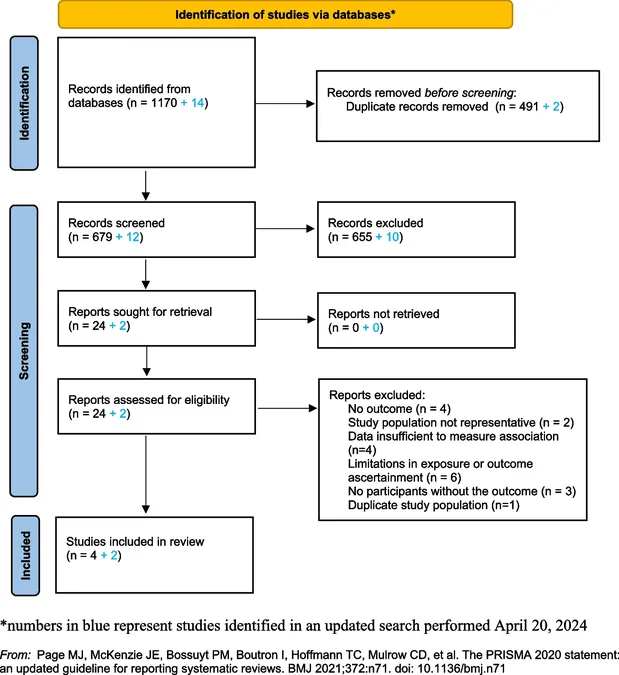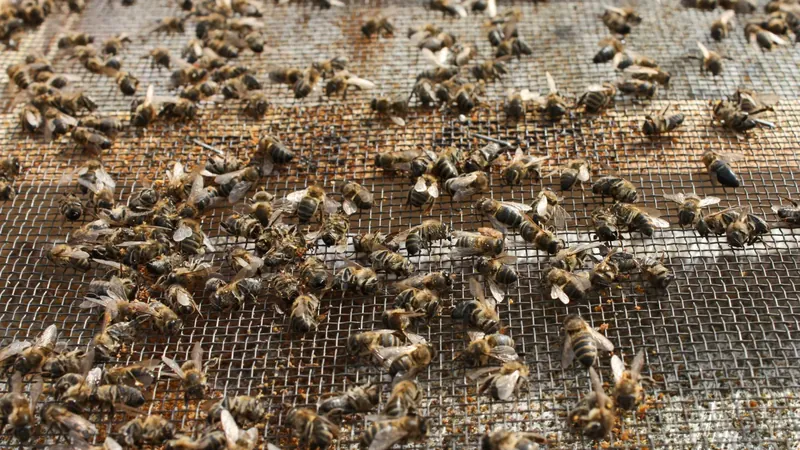
Unveiling the Hidden Dangers: Female Genital Schistosomiasis, Human Papillomavirus, and the Looming Threat of Cervical Pre-Cancer
2025-01-03
Author: Mei
Introduction
While many people associate urinary schistosomiasis with bladder cancer, emerging research reveals a potentially sinister connection between female genital schistosomiasis (FGS), human papillomavirus (HPV), and cervical pre-cancer. A systematic review conducted up until October 2023 sought to dissect this relationship, painting a clearer picture of these intertwined health crises, particularly in sub-Saharan Africa where they pose significant public health risks.
Methodology
To investigate this association, researchers sifted through 1,170 publications, honing in on studies that examined the prevalence of HR-HPV, cervical pre-cancer, and the persistent threat posed by schistosomiasis. The review analyzed studies conducted across several platforms, including OvidSP MEDLINE and PubMed, ultimately identifying six studies inclusive of 1,081 women from sub-Saharan Africa. All studies adhered to strict guidelines for association evaluation.
Findings
The review found that while some studies indicated an increased risk of HPV among women with FGS, the overall data remained inconsistent and of relatively low quality. For instance, a Zimbabwe study showcased a notable increase in HPV prevalence at baseline among women with FGS (adjusted Odds Ratio [aOR]: 1.9), but this association did not hold firm after a five-year follow-up. Meanwhile, findings in KwaZulu-Natal indicated a higher prevalence of HPV among women with visual FGS (aOR: 1.71). In contrast, a study from Madagascar found no such increased odds.
Cervical Pre-Cancer: A Cautionary Tale
Examining cervical pre-cancer, four key studies addressed this concern. One investigation from Zambia revealed a significant connection between FGS and VIA abnormalities, but other studies failed to demonstrate any strong link between FGS and cervical pre-cancer outcomes assessed through histology or cytology. This inconsistency underscores the complexity of FGS's impact on women's reproductive health and amplifies concerns, particularly as cervical cancer continues to pose a dire threat.
Cervical Cancer: An Ominous Reality
Despite being preventable and curable with early diagnosis and treatment, cervical cancer remains a leading cause of cancer-related deaths among women worldwide, chiefly in low-to-middle-income countries where access to care is limited. The WHO's 2020 global strategy aims to eliminate cervical cancer by promoting HPV vaccination, screening, and treatment. Yet, inadequate vaccination coverage and healthcare access undermine these initiatives, leaving vulnerable populations at heightened risk.
The Role of Schistosomiasis: An Underestimated Competitor
Schistosomiasis, a neglected tropical disease affecting over 160 million people in sub-Saharan Africa, complicates the landscape further. The International Agency for Research on Cancer has classified S. haematobium as a carcinogen, associated with not only bladder cancer but potentially cervical cancer as well. The presence of S. haematobium eggs in reproductive tissues can spark inflammatory responses that may facilitate HPV infection and alter the immune response, casting doubt on the body’s ability to combat both infections.
Future Directions
Given the limited existing literature exploring the connection between FGS, HPV infection, and cervical pre-cancer, further research is paramount. Prioritizing high-specificity diagnostics in future studies will pave the way for clearer insights into these associations and help build comprehensive strategies targeting both HPV vaccination and schistosomiasis treatment. Enhanced collaboration between public health authorities, researchers, and healthcare providers is needed to address these critical health challenges.
Conclusion
This review highlights a potentially alarming intersection between female genital schistosomiasis and the persistent threats of HPV and cervical pre-cancer. Amid the drive to eliminate cervical cancer and address schistosomiasis, the call for heightened awareness, research, and preventive measures is louder than ever. As healthcare workers and policymakers unite against these health crises, the hope remains that brighter days lie ahead for women affected by these insidious afflictions.
Stay informed! The concerning connection between schistosomiasis and HPV might be more critical than we realized—dive into the research and understand why this matters for women's health globally!



 Brasil (PT)
Brasil (PT)
 Canada (EN)
Canada (EN)
 Chile (ES)
Chile (ES)
 Česko (CS)
Česko (CS)
 대한민국 (KO)
대한민국 (KO)
 España (ES)
España (ES)
 France (FR)
France (FR)
 Hong Kong (EN)
Hong Kong (EN)
 Italia (IT)
Italia (IT)
 日本 (JA)
日本 (JA)
 Magyarország (HU)
Magyarország (HU)
 Norge (NO)
Norge (NO)
 Polska (PL)
Polska (PL)
 Schweiz (DE)
Schweiz (DE)
 Singapore (EN)
Singapore (EN)
 Sverige (SV)
Sverige (SV)
 Suomi (FI)
Suomi (FI)
 Türkiye (TR)
Türkiye (TR)
 الإمارات العربية المتحدة (AR)
الإمارات العربية المتحدة (AR)